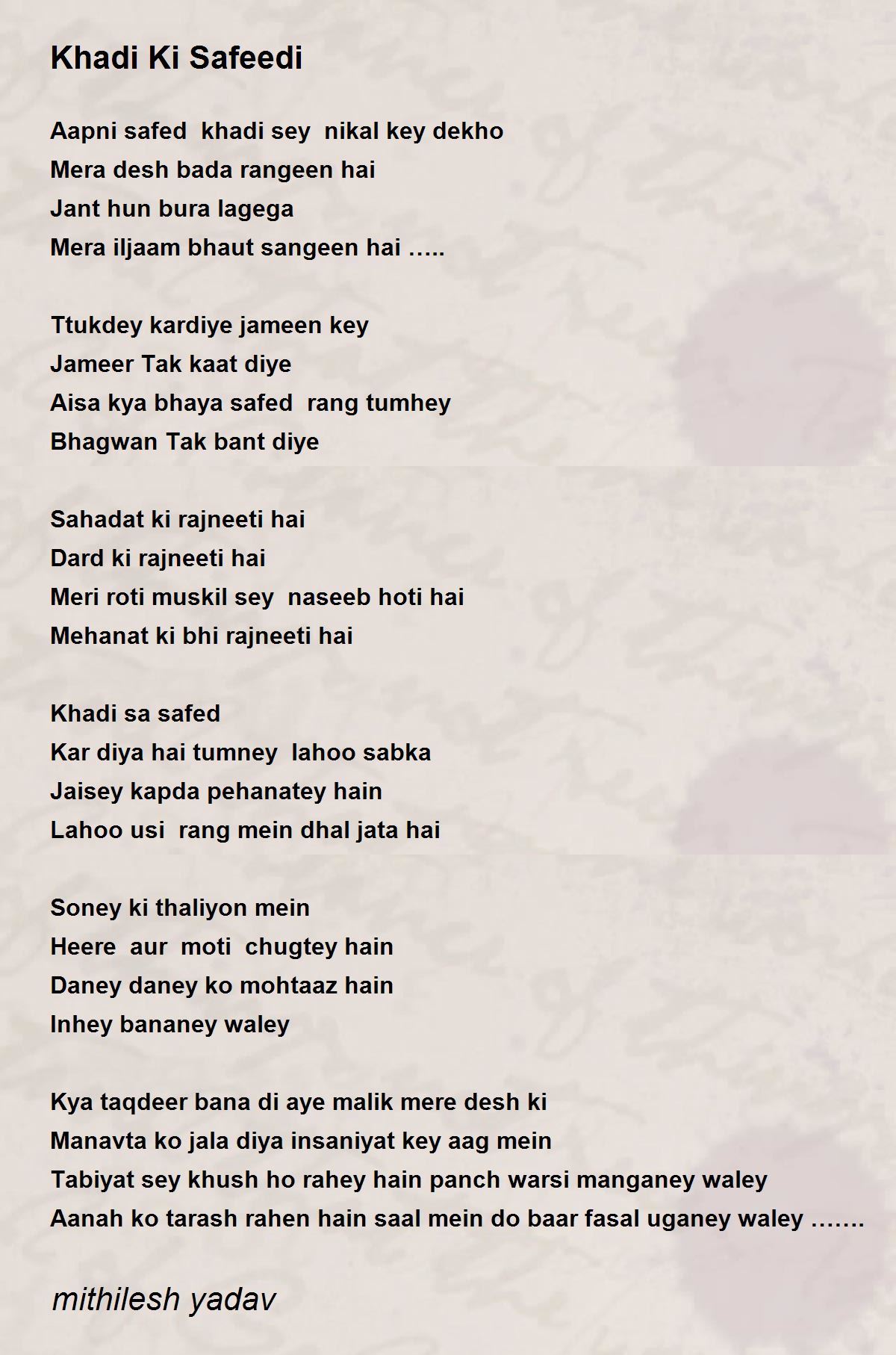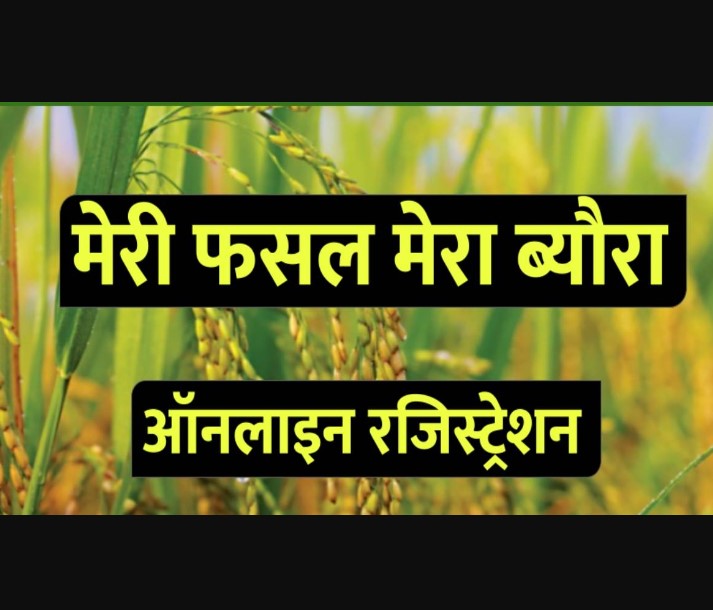Meri Fasal Mera Bura: Empowering Farmers for Better Yields
“Meri Fasal Mera Bura” delves deep into the lives of Indian farmers, highlighting their daily challenges and unwavering spirit. The movie portrays their battles against natural calamities, financial burdens, and societal pressures. It aims to create awareness about the critical issues faced by farmers, emphasizing the need for support and sustainable solutions.
The film’s realistic depiction and strong performances make it a compelling watch. By focusing on the farmers’ plight, the movie encourages viewers to empathize and take action. “Meri Fasal Mera Bura” is a significant contribution to cinema, urging society to recognize and address agricultural struggles.

Introduction To Meri Fasal Mera Bura
Meri Fasal Mera Bura is a great initiative for farmers. It helps them get better crop yields and improve their income. This initiative brings technology and support to the farming community.
Initiative Overview
Meri Fasal Mera Bura is a government program. It aims to help farmers with their crops. The program provides tools and resources. Farmers can use these to grow better crops.
This initiative includes many features:
- Weather updates: Farmers get real-time weather information.
- Soil testing: Helps understand soil health and nutrient needs.
- Market prices: Farmers know the current market rates for their crops.
- Subsidies and loans: Financial help to support farming activities.
Importance For Farmers
This initiative is very important for farmers. It helps them make better decisions. With accurate weather updates, farmers can plan their activities. Soil testing helps in improving crop quality.
Knowing market prices helps farmers sell their crops at the right time. Subsidies and loans provide financial support. This makes farming more sustainable and profitable.
Key Objectives
The initiative, Meri Fasal Mera Bura, has several key objectives. It seeks to improve farming practices and ensure farmer welfare. Let’s explore these objectives.
Boosting Agricultural Output
One main goal is to boost agricultural output. This involves using better seeds and modern techniques. Farmers receive training on the latest farming practices. The government provides financial support for equipment.
Improved irrigation systems are also part of the plan. This helps ensure crops get enough water. The program also promotes the use of organic fertilizers. These measures aim to increase crop yield significantly.
Ensuring Farmer Welfare
Another key objective is ensuring farmer welfare. The initiative offers insurance schemes to protect farmers. These schemes cover crop failures due to natural disasters. Farmers also get access to credit at low interest rates.
Health camps are organized regularly for farmers and their families. Educational programs teach farmers about financial planning. The initiative also focuses on fair pricing for crops. This ensures farmers get a good income for their produce.
| Objective | Details |
|---|---|
| Boosting Agricultural Output |
|
| Ensuring Farmer Welfare |
|
Through these objectives, Meri Fasal Mera Bura aims to transform the agricultural sector. It supports farmers in every way possible. This ensures a brighter future for both farmers and the nation.
Technological Interventions
Modern technology has transformed agriculture. It helps farmers work smarter, not harder.
Meri Fasal Mera Bura benefits greatly from these technological interventions.
This section explores two key areas: mobile apps and data analytics for farming.
Use Of Mobile Apps
Mobile apps are game-changers for farmers. They provide real-time information.
Farmers can get weather updates, crop advice, and market prices. These apps are easy to use and very accessible.
Some popular apps include:
- Kisan Suvidha: Offers weather updates and market prices.
- AgriMarket: Provides information on crop prices.
- IFFCO Kisan: Gives farming tips and expert advice.
Data Analytics For Farming
Data analytics helps farmers make informed decisions. It uses past data to predict future trends.
This helps in planning crop cycles and managing resources efficiently.
Key benefits of data analytics include:
- Improved Yield: Predicts the best planting times.
- Resource Management: Optimizes the use of water and fertilizers.
- Cost Reduction: Reduces wastage and saves money.
| Benefit | Description |
|---|---|
| Improved Yield | Predicts the best planting times. |
| Resource Management | Optimizes the use of water and fertilizers. |
| Cost Reduction | Reduces wastage and saves money. |
Training And Education
Training and education are key parts of the Meri Fasal Mera Bura program. The initiative aims to empower farmers with the latest knowledge. This helps them adopt better farming practices. Below are some ways the program achieves this.
Workshops For Farmers
The program organizes workshops for farmers across various regions. These workshops cover a range of topics:
- Soil health management
- Water conservation techniques
- Pest control methods
- Crop diversification
Experts from agricultural universities lead these workshops. Farmers get hands-on experience and practical advice. They also have the chance to ask questions and clear doubts.
E-learning Platforms
In addition to workshops, the program offers e-learning platforms. These platforms are accessible via smartphones and computers. They provide:
- Video tutorials on farming techniques
- Interactive quizzes to test knowledge
- Downloadable guides and manuals
Farmers can learn at their own pace. The e-learning platforms are available in multiple languages. This ensures that more farmers can benefit from the resources.
Both workshops and e-learning platforms aim to make farmers more skilled and informed. This, in turn, helps in boosting agricultural productivity.
Financial Support
The Meri Fasal Mera Bura initiative offers significant financial support to farmers. This support ensures sustainable farming practices and economic stability. Below, we explore various options available to farmers.
Subsidies And Loans
Farmers can access subsidies to reduce costs. These subsidies cover seeds, fertilizers, and equipment.
- Seed Subsidy: Up to 50% of the cost.
- Fertilizer Subsidy: Flat rate per kilogram.
- Equipment Subsidy: 25% off on new tools.
Additionally, farmers can apply for loans with low-interest rates. These loans help in purchasing essential farming inputs. Different loan types include:
- Kisan Credit Card (KCC): Short-term credit for urgent needs.
- Term Loans: For long-term investments in farming infrastructure.
Insurance Schemes
Insurance schemes provide a safety net against crop failures. The most popular schemes include:
| Scheme Name | Coverage | Premium |
|---|---|---|
| Pradhan Mantri Fasal Bima Yojana (PMFBY) | Natural calamities | 2% for Kharif, 1.5% for Rabi |
| Weather-Based Crop Insurance Scheme (WBCIS) | Weather-related risks | Varies with crop |
These insurance schemes help mitigate risks and ensure farmers’ financial stability.
Success Stories
Welcome to the success stories of Meri Fasal Mera Bura. This section highlights the triumphs of farmers who have adopted this initiative. Learn from their experiences and see how this program has transformed their lives.
Case Studies
| Farmer | Location | Crop | Results |
|---|---|---|---|
| Ramesh Kumar | Karnal, Haryana | Wheat | Yield increased by 20% |
| Sita Devi | Gurgaon, Haryana | Rice | Production boosted by 15% |
Testimonials From Farmers
- Ramesh Kumar: “My wheat yield increased by 20%. This program is amazing.”
- Sita Devi: “I saw a 15% boost in rice production. Very helpful initiative.”
These success stories show the positive impact of the Meri Fasal Mera Bura program. Farmers are reaping the benefits and improving their livelihoods.
Challenges Faced
The Meri Fasal Mera Bura initiative aims to help farmers. Yet, it faces many challenges. These challenges hinder the program’s effectiveness. Below are the main challenges faced.
Resource Limitations
The program often lacks adequate resources. This includes funds and manpower. Without enough resources, implementation is slow. Farmers need timely help. Delays can harm their crops.
Another issue is the lack of technology. Many farmers do not have access to modern tools. This makes it hard to gather and share data. The program needs better tools to be effective.
Adoption Barriers
Many farmers are hesitant to adopt new methods. They are used to traditional farming techniques. Changing habits is tough. This is a major adoption barrier.
There is also a lack of awareness. Many farmers do not know about the program. Without proper information, they cannot participate. Effective communication is crucial.
Here are some adoption barriers in detail:
- Lack of Trust: Farmers may not trust new methods.
- Cost Concerns: New tools and methods can be expensive.
- Education Gaps: Farmers need training to use new techniques.
Addressing these barriers is essential for the program’s success.
| Challenge | Details |
|---|---|
| Resource Limitations | Lack of funds, manpower, and technology |
| Adoption Barriers | Hesitancy, lack of awareness, trust issues |
Future Prospects
The ‘Meri Fasal Mera Bura’ initiative has shown remarkable progress. Farmers are now more empowered and resourceful. Future prospects of this program look promising and impactful.
Expansion Plans
Meri Fasal Mera Bura aims to reach every farmer in India. The program plans to expand into more states next year. This expansion will include:
- New technology training for farmers
- Access to better seeds and fertilizers
- Improved irrigation techniques
The initiative will also introduce more mobile apps. These apps will help farmers with weather forecasts and market prices. This will ensure farmers make informed decisions.
Long-term Goals
The long-term goals of Meri Fasal Mera Bura are ambitious. The program aims to make farming sustainable and profitable. The main long-term goals include:
- Increase crop yield by 50% in the next five years
- Reduce post-harvest losses through better storage solutions
- Enhance market access for farmers
- Promote the use of organic farming methods
By achieving these goals, the program hopes to improve the overall quality of life for farmers. This will also contribute to the economic growth of the country.
| Key Focus Areas | Details |
|---|---|
| Expansion Plans | New technology, better seeds, improved irrigation, mobile apps |
| Long-term Goals | Increase crop yield, reduce post-harvest losses, enhance market access, promote organic farming |

Frequently Asked Questions
What Is Meri Fasal Mera Bura?
Meri Fasal Mera Bura is a government initiative. It aims to help farmers track their crops. Farmers can register their crops online.
How To Register For Meri Fasal Mera Bura?
To register, visit the official website. Fill out the required details about your crops. Submit your information online.
What Benefits Do Farmers Get?
Farmers receive timely updates on crop conditions. They can access government schemes easily. It also helps in getting fair prices.
Is The Registration Process Online?
Yes, the registration process is completely online. Farmers can register from anywhere. It saves time and effort.
Conclusion
The “Meri Fasal Mera Bura” initiative empowers farmers with valuable resources and support. This program enhances crop management and boosts yields. It’s a significant step towards sustainable agriculture. Farmers can now access vital information easily. Embrace this initiative for a prosperous farming future.






